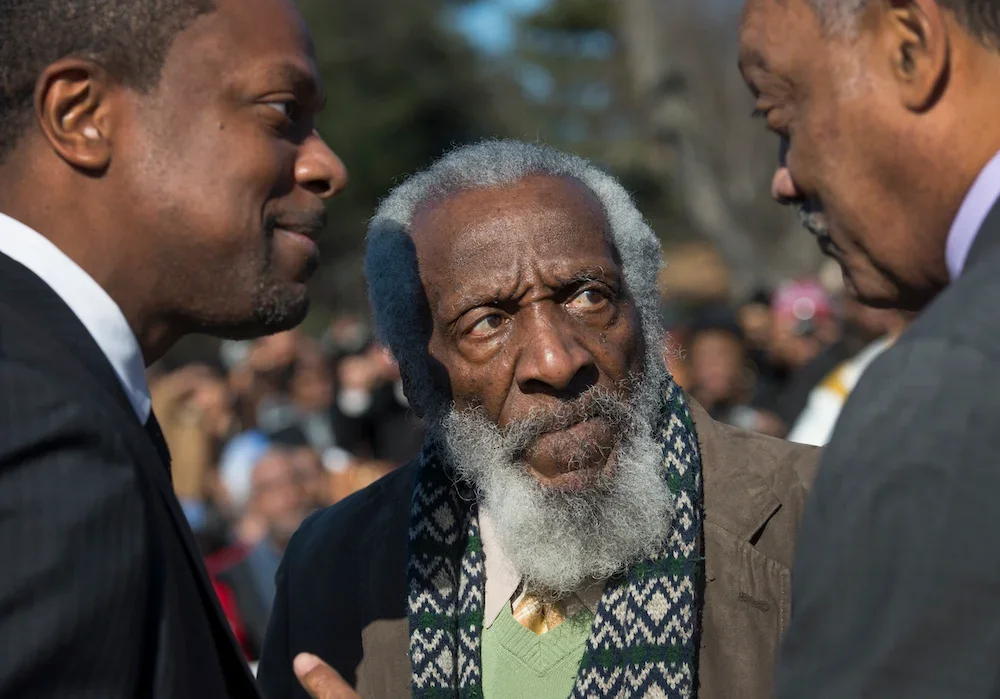
Ali Siddiq doesn’t tell jokes. His humor lies somewhere between autobiographical storytelling, social commentary, and talk therapy. I first discovered the comedian about a year ago when my YouTube algorithm led me to his one-hour special, “The Domino Effect.” Within the first minute, I was enthralled by his storytelling, which connected and inspired, and totally drew me in.
The comedy special was like no other, at least that I’ve ever seen. Instead of jumping between anecdotes, Siddiq leads the audience through one continuous narrative from his childhood to the present. It’s essentially his life story, with all the apartment hopping, corner drops, and cell blocks along the way. It was captivating, challenging, and impactful — and above all, hilarious, without a single discernable punchline.
I shared the video link with everyone I knew, and apparently, I wasn’t the only one — with 11 million views and counting, “The Domino Effect ” set off a chain reaction. The special has since achieved the level of virality that transforms anecdotes into conversational catchphrases and elevates comedians to household names.
So, when my editor approved my pitch for a Black History Month series interviewing up and coming creatives about their iconic influences, Siddiq Ali naturally came to mind. When he cited Dick Gregory as his comedic role model, his bold originality, comedic audacity, and social bent all made sense.
As a tribute to the pioneers upon whose shoulders we stand, I offer activist, author, and comedic icon Dick Gregory, as seen through the lens of stand-up comedian, personality, and prison reform advocate Ali Siddiq:
Can you pinpoint the specific instance when you realized Dick Gregory was extraordinary?
I thought Dick Gregory only did stand up until I watched House Party: “Peanut, fix me some of that Dick Gregory.”
After seeing that, I learned he had a weight loss drink and brand deals. That led to more research. I found that he had a political aspect to him; he ran for office and wrote a book. That’s when I noticed he was something special.
You have to be able to do multiple things and have multiple outlooks on your craft. Stand-up is not just about being funny. It’s about being a great orator. It’s Dick that gave me an understanding that when you’re in front of people, you’re in a position of responsibility, so you need to say something that is food for thought, food for encouragement. Don’t just be a court jester.
Which of his works do you regard as seminal or believe has left a lasting imprint on culture?
His book Nigger: An Autobiography was one. But I also don’t think you can put any icon into a box of one piece of work. All the work is significant because it leads you to the next installment of their work. His writing, his stand-up, his political standings — it’s the evolution of an icon. His catalog of work is phenomenal. And I didn’t get introduced to him until 15 years into his career, so I had a lot to learn.
But the most significant, seminal moment personally was the 6 hours I spent with him myself. My icon told me I was going to take his place — if I could keep my attitude in check. He recognized that in me and tried to guide me. He said, “Hollywood isn’t going to be the place for you because you don’t like bullshit and fake games.” Four months later, he passed away. That conversation made me realize I’d have to carve my own path outside of the traditional Hollywood system, which I’ve been very fortunate to do.
How has his example impacted or shaped your creative process?
Selflessness. His creative process has made me do my stand-up with underlying and out-front messages to everything. The story is just what happened. But there is a solution, a lesson, and consequences to get around within the story. There’s the identifying moment where you can do something different. The moment you can change. Get a different perspective. Look at how nature moves. He taught me the value of being my true self and helping others be their true selves. Self-understanding and community understanding are valuable perspectives. There’s value in community.

Dick Gregory: Beyond Comedy – A Black History Fact Check
- Gregory introduced the Bahamian Diet Nutrition Drink, promoting the product through television commercials. He emerged as one of the pioneering black entertainers to create and promote a product for sale.
- In 1968, Gregory ran for president as a write-in candidate representing the Freedom and Peace Party, an offshoot of the Peace and Freedom Party.
- Among Gregory’s many books are works such as “Nigger: An Autobiography” (1964) and “No More Lies: The Myth and the Reality of American History” (1971). Achieving best-seller status, his writings received acclaim within the Black community and resonated with broader audiences.
In 2017, Dick Gregory passed away at the age of 84. He and his wife Lillian Smith, married in 1959, raised 11 children together; he is survived by 10. Beyond the legacy of family, his presence on the world’s stage was important and impactful.
Gregory participated in the Selma march, faced numerous arrests for protesting, sustained a gunshot wound during the 1965 Watts riots, and undertook hunger strikes in support of causes, including the Vietnam War. His deep friendship with John Lennon, inspired by shared values, inspired the iconic song “Imagine.” And that’s just a five year snapshot of his extraordinary life.
We join Ali Saddiq in saluting his enduring legacy this month and beyond.





